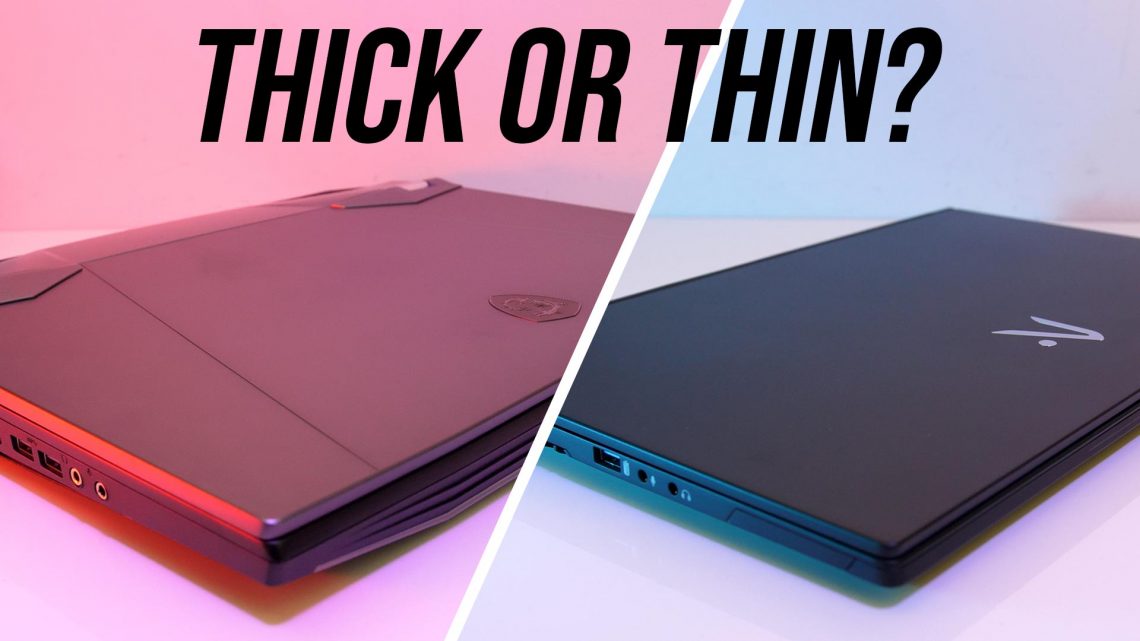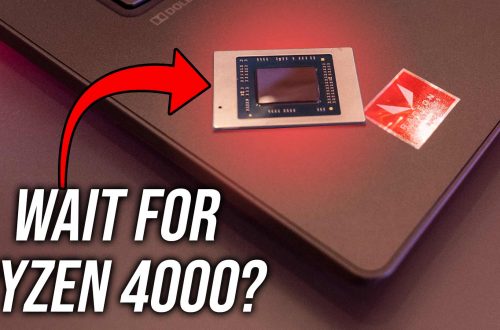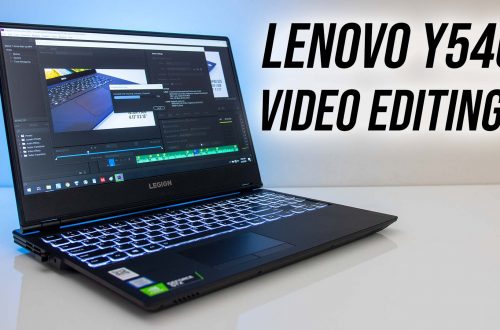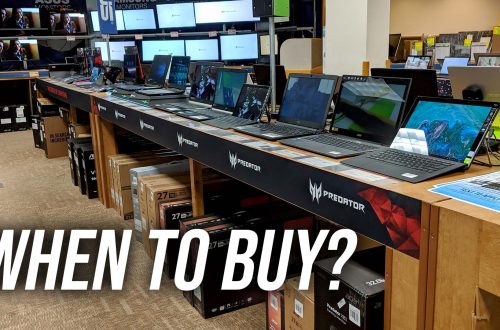
Are Thick Gaming Laptops Worth It?
Thick gaming laptops take up more space, are heavier, and often cost more, but does the extra power actually make them worth it? Let’s find out!
It will come down to personal preference. If you travel a lot, transporting a heavier machine may not be worth it. If you move around much less but need more power, then a thicker laptop could offer what you need. Let’s cover the good and bad sides of thick gaming laptops.
Positives of Thick Gaming Laptops
- Performance: You’re only really going to find the higher end specs available in bigger laptops, as more space is needed to manage all that power. The thickest options like the MSI GT76 or Alienware 51m go right up to Intel i9-9900K processors!
- Cooling: A thicker chassis means there is more room available for cooling. Those two aforementioned models have a lot of thick heat pipes and large fans, as high powered hardware in a tight space heats up. With top end specs, thermal throttling will be an issue, however with more mid range specs, improvements are expected.
- Features: With more space available, generally it’s possible to fit in more ports, bigger batteries, more storage etc.
Negatives of Thick Gaming Laptops
- Size: This one’s obvious, but thicker gaming laptops are physically larger and take up more space. If you have an existing bag, then consider whether or not the thicker laptop will fit, as you may not have enough space.
- Weight: When size increases, weight typically follows. Gaming laptops are designed to be portable – that’s literally the entire point. If you don’t need the portability aspect, then you should instead consider a gaming PC. If you have to carry your bag around you all day with a huge laptop, well you can probably cancel your gym membership.
- Cost: Thicker machines typically pack more specs and features within, and these things are not free. If you’re going for a thicker machine with high levels of power then expect to pay a premium. If you’re looking at a thicker machine with lower end specs though, then this would be less of a consideration.
It’s All About Balance
You need to find something that works for you. If you’re looking for a powerful desktop replacement that doesn’t get moved around often, a thicker machine could be a great idea. If you travel around a lot and have minimal bag space, then it’s not going to work out quite as well.
There are plenty of gaming laptops out there that aren’t huge that are still capable of playing all modern games with decent settings, it’s a balancing act. The Acer Helios 300 or Eluktronics MAG-15 are two great examples of that.
We are a participant in the Amazon Services LLC Associates Program, an affiliate advertising program designed to provide a means for us to earn fees by linking to Amazon.com and affiliated sites.





4 Comments
ahmedelhelaly
Do you think it’s only about weight?
I mean If you dont travel alot and mobility isn’t that important to you, and as the laptops cant maka a full use of the hardware performance, do you think that performance diffrence really worth it?
I mean the performance difference between slim gaming laptops (such as Aero 15, Msi stealth, Razer and eluktronics) and thick gaming laptops worth the extra bucks you would pay for a Tiatan, Aorus 17X or and area 51m?
Is the performance diffrence really that huge?
Jarrod
It depends how much you need the portability, if not then there are definitely thicker desktop replacements for those sorts of users, eg it sits at home 99% of the time but you can still easily take it to a lan party for example. With those examples, the difference is pretty big in GPU power in particular as you get far higher wattage options, eg 200W RTX 2080, while Max-Q would be 90-105w with Dynamic Boost, 115w for a 2070 Max-P.
Ahmedelhelaly
Correct me if I’m wrong but the benchmark diffrence between thick and light gaming laptops doesn’t go beyond 10% to 15% maximum for the same configurations
Jarrod
Honestly I’ve never really compared it, but that’s mostly because when I get sent thicker laptops they don’t have Max-Q in many cases.